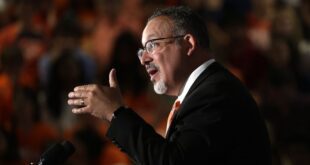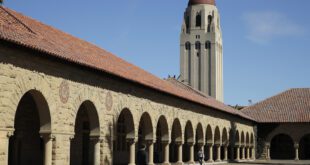Main Argument Against Diverting Taxpayer Dollars to Private Schools
The General Assembly’s proposal to redirect taxpayer dollars away from public schools and towards private and parochial schools raises constitutional concerns. This plan lacks the transparency and accountability expected of public schools, as tax dollars would support “Opportunity Scholarships” for private education. Notably, this includes funding for wealthy families and those already enrolled in private schools, amounting to over $2.2 billion in taxpayer money over the next decade.
Most concerning is the allowance for private and religious schools to discriminate against potential voucher applicants based on religious beliefs and personal characteristics. Unlike public schools that accept all students, regardless of race, creed, color, sexual orientation, or religious and political beliefs, private and parochial schools can selectively choose students who align with their beliefs while rejecting others.
The Constitution of North Carolina, established in 1868, laid out the responsibility of the state to provide free public education for all children, including those historically marginalized due to race, religion, or financial resources. Notably, this constitution did not include provisions for financing private and religious education using public tax dollars.
North Carolina has traditionally had bipartisan support for public education, with both Republican and Democratic governors and General Assembly leaders championing its cause. Instead of diverting millions of tax dollars to unaccountable private and often discriminatory schools, the General Assembly should address the unmet needs of public schools, particularly in rural areas, as outlined in the longstanding Leandro case.
Regrettably, North Carolina now ranks among the lowest states in terms of school funding efforts. Starting teacher salaries are lower than almost every state in the Southeast, except for West Virginia. In fact, North Carolina’s teacher pay is nearly $12,000 below the national average. This situation reflects poorly on the state and makes a mockery of efforts to improve education.
The ideology behind this proposal aims to undermine public education by shifting responsibility away from what is best for the common good of North Carolina citizens to a self-serving mindset, all at the expense of taxpayers.
A significant majority of North Carolinians value and support their local public schools and teachers. They understand that a well-educated and civically engaged public is crucial for building and maintaining a thriving state to live in.
Our founding fathers recognized the essential role of public education in a democracy, and we should continue to uphold this principle. Diverting public funds to private and religious education not only undermines our public schools but also weakens our free and democratic society.
We strongly urge the General Assembly to reject this proposal.
Steering Committee
Charles R. Coble, Larry Coble, Janice Davis, Nancy Farmer, Bill Harrison, Dick Jones, Larry Mabe, and Michael D. Priddy.
List of Supporters as of 7.25.23
Alisa Chapman, Paula Dempsey, John Dunn, Sr., Elaine Franklin, Evelyn Gerdes, Janice Nicholson, Joe Peel, Melissa McCullough, Lennox McLendon, Matthew Ripley-Moffitt, Lloyd Spruill, Don Stedman, Charles Thompson, Fran Wescott, Leslie Alexander, Del Burns, Melody Clodfelter, Allison Coble, Deanna Coley, Lillie Cox, Ann Davis, Carl Lashley, Emily Lipe, Kim Morrison, Tricia McManus, Gene Moore, Lory Morrow, Dub Potts, Carolyn Jackson, Tony Jackson, Ron Hargrave, Donna Peters, Deanne Meadows, Charles Morris, Amanda Hartness, Travis Reeves, Rick Reitzug, Jill Renhardt, Mark Rumley, Randy Shaver, Jim Simeon, Ron Singletary, Bill Steed, Karen Sumner, Darrell Walker, Jeff Wallace, Max Walser, Barbara Zwadyk, Jack Charles Boger, Randy Bridges, Jim Causby, David Diamont, Margaret Dickson, John Dornan, Bev Emory, Rick Glazier, Tom Hatch, Jim Merrill, Ann McColl, Bill McNeal, Bob Orr, Donna Peters, Lee Spruill, Earl Vaughan, Jr, Jane Wettach, Gary Childers, Scott Elliott, June Atkinson, Paul Joyce, Deb McManus, Barbara Chapman, Elizabeth Colbert, Randy Collier, Gerry House, David Lewis, Gus Martin, Denise Morton, Tom Williams, Lynn Antil, Libby Carter, Bridget Johnson, K. Kent, Helena Wallin-Miller, Helen Ladd, and Ted Fiske.
+
 Mind Uncharted Explore. Discover. Learn.
Mind Uncharted Explore. Discover. Learn.




